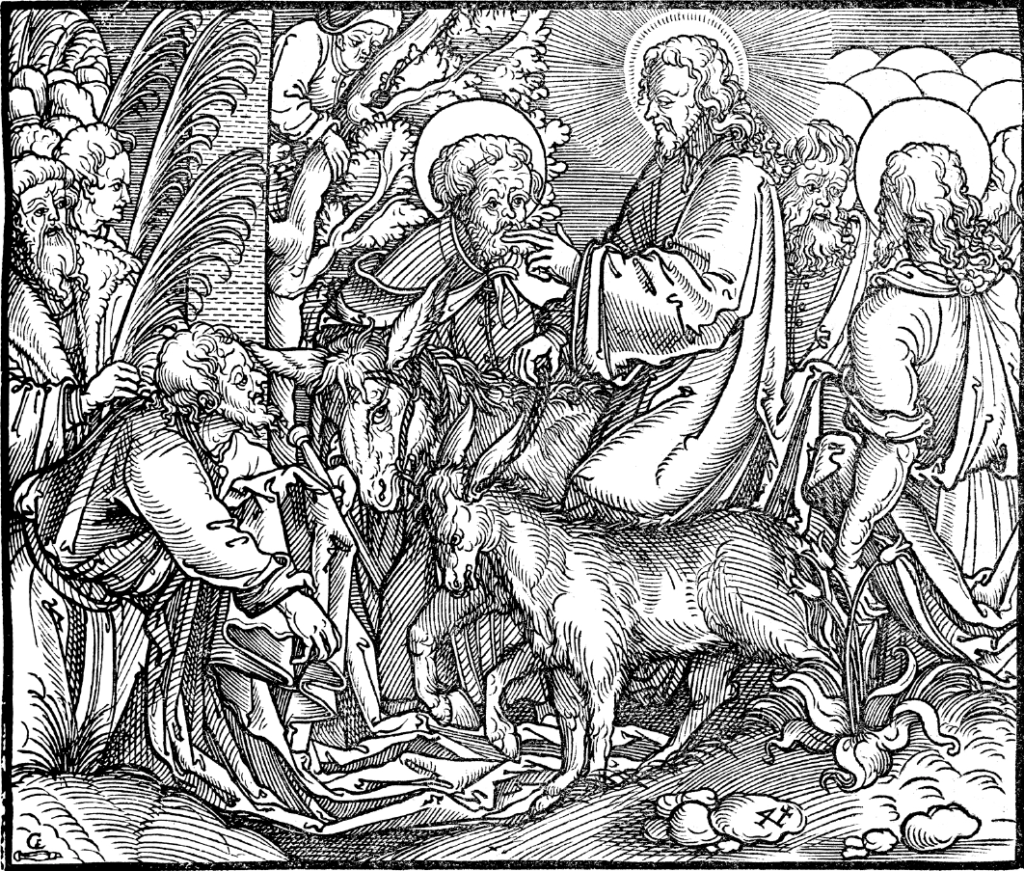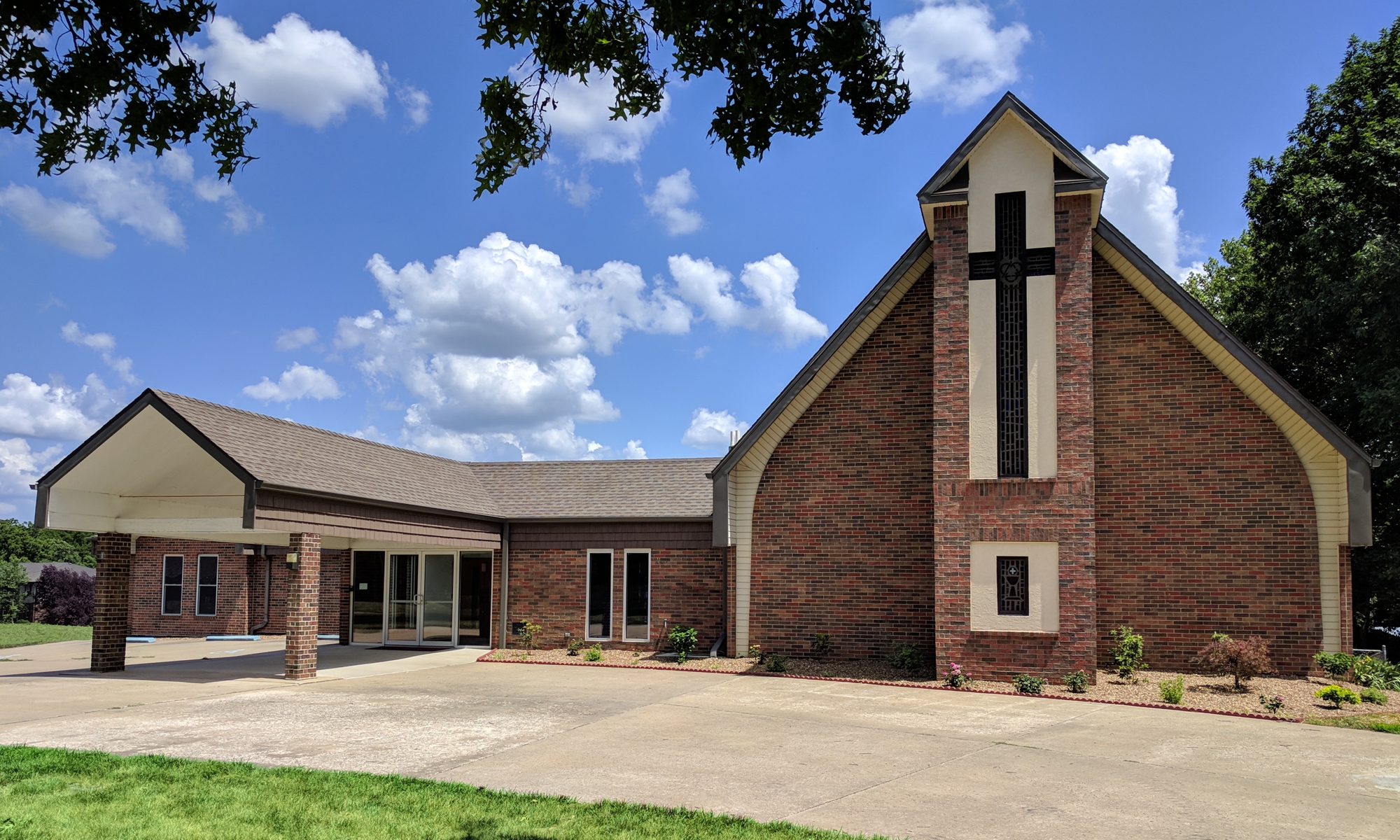
Lessons: Jeremiah 23:5-8, Romans 13:8-14, Matthew 21:1-9
Hymns: LSB 350, 332, 334, 335, 333
Grace, mercy, and peace to you from God our Father and our Lord and Savior, Jesus Christ. Amen.
The world is changing all around us. In our day, there’s so much confusion, restlessness, and upheaval. Our society is becoming increasingly polarized. Customs and traditions are being put by the wayside. In every area of human activity—social, political, scientific, and industrial—there is so much instability that leaves many without any hope of permanence and rest.
Despite these changes, there are some that never change. Our needs for the body remain the same—healthy food, adequate shelter, and good clothing, along with the human need for family, friends, and structure to supply for our bodily needs. The needs of the soul also remain the same. We are all born infected with the sin of Adam—a sin so great that he was banished from Paradise and cursed with hard labor, ground that won’t produce perfectly, and the wages of sin—death. Because we have inherited Adam’s sin, we are born blind, dead, and enemies of God. This is our natural, fallen state.
So the question arises (to quote the hymnwriter), “O Lord, how shall I meet You, how welcome You aright?” Since we are sinners, how can we receive You? Since we are born as Your enemies, Lord, how can we come into Your presence?
Today is New Year’s Day for the Church. The Church Year always begins four Sundays before Christmas. During these four weeks known as Advent, the Church prepares to meet the Lord. And in the middle of today’s Gospel, Matthew quotes the prophet Zechariah, writing, “Say to the daughter of Zion, ‘Behold, your king is coming to you, humble, and mounted on a donkey, on a colt, the foal of a beast of burden’” (Matt 21:5, quoting Zechariah 9:9). What this passage of Scripture teaches is that we do not find God; He finds us. Our King comes to us. This is made very clear through infant Baptism—God searches out the sinner and adds the sinner to His family. God does these things even when a child is unable to anything.
Sinners cannot come into the presence of God and live. Therefore, we must be reconciled to God. Our sin needs to be cancelled out if we wish to achieve eternal life. Despite the many changes going on in our world, our need for reconciliation with God never changes, along with our need for Someone outside of us to save us.
The hymnwriter who asked the excellent question, “O Lord, how shall I meet You?” is Paul Gerhardt. He was a German pastor, living in the 1600s. This hymn, which we will sing each Sunday this Advent as our Hymn of the Season, is based on today’s Gospel—our Lord’s entry into Jerusalem as King who comes to us humbly to save.
Paul Gerhardt is considered to be one of the greatest hymn writers ever. While some wrote far more hymns that he did, most do not match his simplicity, eloquence, solid theology, and deep words. As with many translated hymns, the simplicity and beauty of his German hymns are often hidden in the English language.
Gerhardt wrote about 133 hymns during his difficult life. He was orphaned at age 14 and his high school almost closed due to the plague. He lived much of his life in poverty. When he married at the age of 44, over the next several years he found himself burying four of his five children, along with his wife. Only one son lived to bury Gerhardt. That boy was orphaned at the age of 15. Gerhardt often had difficulty finding work even though he was a pastor, in part because of the Thirty Years’ War which was ravaging Germany.
When Gerhardt was ordained into the Holy Ministry, he made the same promise that all Missouri Synod pastors make today—to uphold the Bible as God’s inspired Word, and to confess the Book of Concord as a true exposition of God’s Word. But for Gerhardt, the government issued an edict declaring that Lutherans must not speak against the false teachings of the Reformed. Since Gerhardt was bound to the Word of God, he could abide by the edit, nor could he approve of such false teachings. So he was forced out of his office. This happened after he had lost three of his five children. A fourth child and his wife were seriously ill and would die soon thereafter.
Usually, the best hymns produced by the Church come out of times of serious affliction and trial. This is certainly true for Luther and Gerhardt. Luther wrote most of his hymns in the 1520s after a Papal Bull demanded his arrest and execution. Gerhardt survived the Thirty Years’ War but suffered through much affliction. In fact, when Gerhardt arrived to serve a church in Wittenberg, the devastating effects of war had reduced Wittenberg’s population by 75%.
Why all this suffering? There’s a few reasons. The first is taught in Genesis 3. When Adam and Eve sinned, they brought the entire world into sin. God declared to Adam, “Cursed is the ground for your sake; in toil you shall eat of it all the days of your life” (Gen. 3:17). Life here on earth was not easy, it isn’t easy, and it will never be easy. We live in a fallen world. Gerhard touched on this in stanza 3:
3. I lay in fetters, groaning; You came to set me free.
I stood, my shame bemoaning; You came to honor me.
A glorious crown You give me, A treasure safe on high
That will not fail or leave me As earthly riches fly.
Gerhardt describes our sin as something that keeps us in fetters. That is, our sin has chained us up, enslaving us. Our sin is shameful; there’s nothing good about our sin.
Also in Genesis 3, God’s Word reports that Adam and Eve were originally naked. Without sin, they had no shame. They had nothing to hide. They could be open books to each other. But when they ate the forbidden fruit, their eyes were opened, they knew they were naked; and they sewed fig leaves together to serve as coverings. They now had something to hide, and they needed to be covered.
Our sin can be likened to the shame in nakedness. Our sin exposes who we really are. We are weak and corrupt. We need to be covered.
That’s why our Lord comes to us and meets us. He comes to set us free from our shackles. He comes to reconcile us, forgive us, and give us a treasure that will not fail or leave us. He comes as our lowly King.
Jesus comes to cover us and clothe us with His blood and righteousness. When clothed in Christ, we are no longer naked—no longer covered with shame—no longer chained to our sin. We are free from sin. We are alive in Christ Jesus our Lord.
As our Lord entered Jerusalem in His first coming, the people greeted Jesus with shouts of hosanna. They proclaimed, “Save us now” as Jesus rode on a donkey. In our day, we keep on singing our hosannas each Sunday when Christ comes to us in His Body and Blood, granting us His gifts. As we sing the Sanctus before the Words of Institution, we sing our hosannas to Jesus who continues to make His entrance among us in the Sacrament. It is so incredibly comforting to sing these timeless words in our ever-so-changing world.
As I’ve said, Paul Gerhardt begins his hymn with a great question:
1. O Lord, how shall I meet You, How welcome You aright?
Your people long to greet You, My hope, my heart’s delight!
O kindle, Lord most holy, Your lamp within my breast
To do in spirit lowly All that may please You best.
How do we meet Jesus when He comes to us? We’re sinners. He’s sinless. We’re in need. He’s the one to help. We’re ashamed. He’s the one who will cover us. We pray that God would kindle in us hearts and souls that will hear Him—and do as He teaches—that we may live as His redeemed in righteousness before God. This righteousness comes from our Lord and Savior Jesus Christ, for as the prophet Jeremiah declared, Jesus is the Lord our Righteousness (Jer. 23:6). He laid down His life for us. He rode into Jerusalem to shed His innocent Blood as the payment for our sin. We meet Him as sinners, but He meets us as forgiven children of God.
2. Your Zion strews before You Green boughs and fairest palms;
And I too will adore You With joyous songs and psalms.
My heart shall bloom forever For You with praises new
And from Your name shall never Withhold the honor due.
With our Lord making His entrance among us, how can we not but meet Him with joy? How can we not but adore Him and honor Him? How can we not but praise the Lord for all His benefits?
Our Lord does not make His entrance among us in a hopeless or helpless way. He accomplishes God’s will. When Gerhardt suffered, he realized that God had not abandoned him, but God was still with him. “Whom the Lord loves He chastens” (Heb. 12:6). “All things work for the good of those who love Him, who are called according to His purpose” (Rom. 8:28). If Gerhardt had not faced his many afflictions, he would not have written the wonderful hymns that we enjoy today.
God never promised that life here would be easy, but we are guaranteed thorns and thistles, sweat and sorrow.
And more than that, God promised to send His Son—the Savior of the Nations—the Messiah who would defeat the Devil, replace our sin with His righteousness, and swallow up death in victory.
Jesus came, making His entrance into this world. He rode into Jerusalem humbly as a Servant—to die in our place and grant us life. He lives so that we can now live in Him.
Christ comes to us today. We meet Him, praise Him, and bless Him for all that He does for us! He will someday take us from the veil of sorrows to Himself in Heaven. How do we meet Him? With great joy, knowing that He comes to us humbly in human flesh to save us. Amen.
The peace of God which passes all understanding keep your hearts and minds in Christ Jesus to life everlasting. Amen

